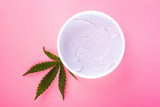How are All THC-Based Products Usually Lab-Tested?
Next time you purchase delta 8, delta 9, delta 10, THC-O, THC-P, or even a THCV product, right before even considering the milligram strength or delivery method of a particular formula, there is one thing that you should be checking for first: third-party lab reports. Lab reports are the only way to actually verify that a product a company is selling is legitimate, pure, and generally safe for use. They are, in fact, so important that any company that does not offer them should be avoided completely.
All THC product lab-testing is a critical process that keeps the industry in good standing with consumers and regulatory bodies in the country. When buying any hemp-based product in general, you should look for lab reports before even considering making a purchase.
Why is Lab-Testing So Important?
Lab reports have become a standard throughout the industry. They exist mainly to regulate the hemp industry, offering a way to provide customers with proof that a THC-based product is completely genuine and high in quality, while being free of harmful compounds, microbes, and materials.
As the hemp industry is not yet fully regulated by a governing body, companies within the industry have had to prove their legitimacy to the public. Lab reports exist as a means for doing so, as they come from an unbiased third-party that is not motivated to fudge reports to make a product look better or safer than it is.
Are All THC-Infused Products Lab-Tested?
Lab-testing has become so synonymous with quality that nowadays, companies that blatantly avoid this process are generally regarded as untrustworthy, and customers will stay away. That being said, a company that does not clearly provide lab reports for their products should be avoided. Why? Because it can indicate that the company has something to hide.
Where Can I Find Lab Reports for a Delta 8 Product?
Another thing about third-party lab reports is that they should be very accessible to customers. After all, a company that is making legitimate products should be proud to make these reports as easy to find as possible, right? So, when looking for lab reports, you should have no trouble finding them on a company’s website, where they will be located either on the same page as the individual product, or in a separate section dedicated to lab reports.
Either way, you should never have to search too far to find them, as any genuine company/manufacturer recognizes that customers/consumers are looking for these results when they go to purchase an item.
What Does Lab-Testing Entail?
Thanks to the standards in third-party testing, we can find out for ourselves just how good a THC-based product is from reputable companies/manufacturers who go through the process properly in order for consumers to verify the quality and legitimacy of their products.
#1: Finding a Legitimate Laboratory
The first step is finding a legitimate laboratory that will be testing the samples of whichever THC-based product it is. That laboratory used by a company must be registered with their state’s department of agriculture in order to be legitimate. This implies that they have the authority to analyze hemp in a way that yields accurate information, and that they handle the delta 8 in a way that does not risk contamination.
#2: Sending Each Batch of Delta 8 to the Lab
Next, the brand will send each batch and other hemp extracts to a laboratory, which ensures consistency between products sold. These samples are carefully handled throughout, again to avoid the risk of contamination.
#3: Receiving the Lab Reports
Once the hemp has been fully analyzed by the laboratory, the sample extract is returned to them along with the lab reports for that particular batch.
#4: Making the Lab Reports Available to Customers
From there, the company prints their lab reports on their website along with their newly formulated products.
What Should You Look for When Reading Any THC Cannabinoid Product Lab Report?
Fortunately, these reports are pretty straightforward and organized, not to mention concise. Still, there are important factors to be paying attention to.
Factor #1: A Verifiable Lab
The very first thing that you should do is verify the laboratory, because unfortunately, some shady companies may make up lab reports, and so the only way to know that they are genuine is to look for the lab to check that it’s legitimate. The name of the laboratory should be printed on the top right corner of the paper, and you should look up the name to find their website and verify that they are registered with the state.
Factor #2: The Breakdown of Chemical Compounds in the Sample of Extract
Of course, you’re looking for that prominent cannabinoid- delta 8, delta 10, THC-O, etc., as that’s the key compound in the product you’re planning to purchase. Most THC-Based products are made with that said cannabinoid’s distillate, which should have roughly a 92%-95% purity level, with the other 5%-7% being made up of other compounds in hemp. The breakdown of chemical compounds will indicate the percentages of the compounds present.
Factor #3: Legal Compliance
Assuming you live in a state in which marijuana is illegal, you’ll want to make sure that the company complies with the law by making a hemp extract that contains no more than 0.3% delta 9 THC. This again will be indicated in the breakdown of chemical compounds clearly listed at the top of the report.
Factor #4: Impurities
We want our compound extracts to be as pure as possible, as impurities such as solvents used in lower-quality extraction methods and impurities in the soil in which the hemp was grown can interfere with the quality of the product. Some impurities can be harmful, such as heavy metals and pesticides used in conventional growing methods. An indication that the extract was tested for impurities will be clearly shown on the report, so read this section carefully to make sure you’re getting a pure product.
Factor #5: Microbes
There will be a section showing the microbial content of the sample. This will indicate whether or not any pathogenic or otherwise harmful microbes were found in the sample, such as certain breeds of fungi or bacteria. Naturally, you will want to avoid these harmful microbes, and note that they are very rare. If harmful microbes were found in a sample of hemp, assume that a company would not risk selling that product on their website.
Factor #6: Contaminants
Finding some sort of indication that the product was not contaminated during the process is crucial. There will be some sort of explanation of how the sample was handled and whether or not it was potentially exposed to any contaminants at any time.
Recent Posts
-
What is a Topical Entourage Effect?
The world of wellness and skincare is full of fascinating concepts, and few are as intriguing as the …Dec 26, 2025 -
2025 Cannabinoid Matchup: Delta 8 THC vs. PHC
The cannabis universe never ceases to amaze, and 2025 is proving to be a blockbuster year for cannab …Dec 22, 2025 -
A Mushroom Consumption Question: Which Mushroom Drink/Beverage is Right for Me?
The subtle, earthy aroma of fungi has wafted through human history for millennia, long before it was …Dec 19, 2025


